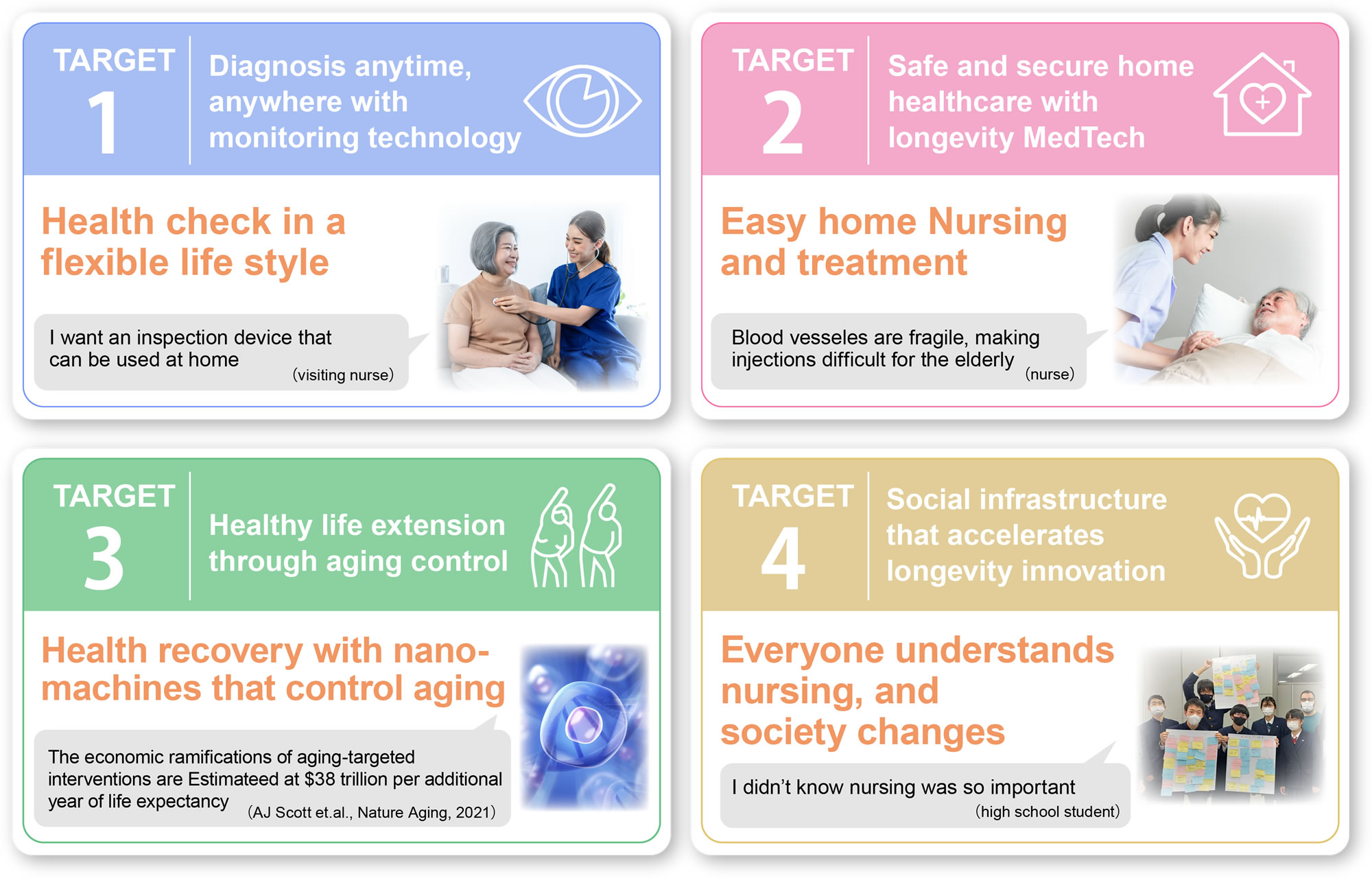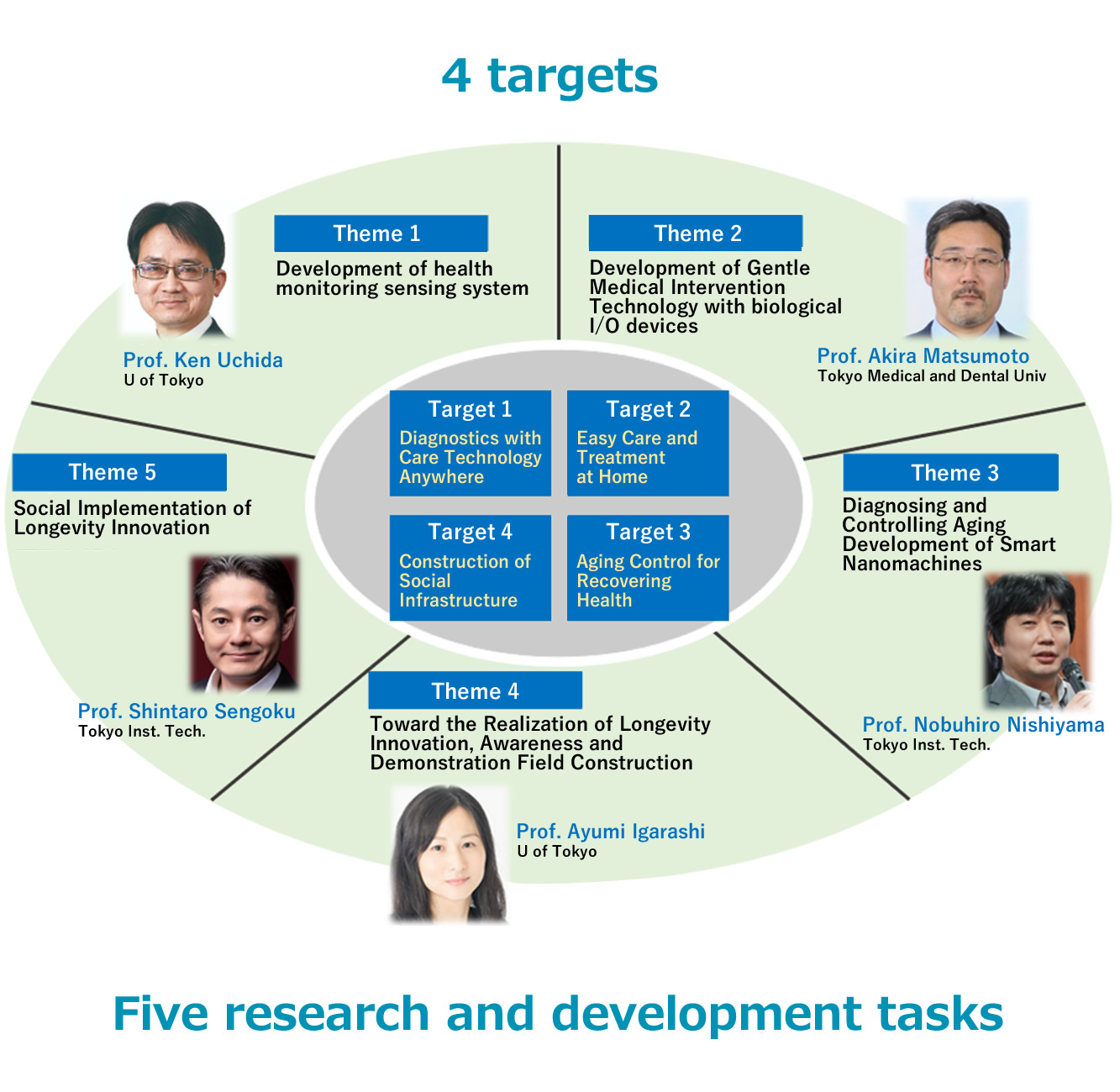

Currently, there are many tests, including blood tests, that cannot be performed without a visit to a medical institution. In R&D Project 1, we will research downsizing and non-invasive methods (e.g., biochemical tests instead of blood sampling) so that such tests can be performed at home as much as possible. Furthermore, we will develop a system in which a sensor installed in the living room can check the health status of the patient while the patient goes about his/her normal daily life at home.
While it is important in clinical pharmacy to manage medication according to the patient’s medical condition, it is not easy to do so in the home. We aim to optimize medication management at home by developing an affixable drug concentration management device that measures specific biomarkers in body fluids and automatically administers the appropriate dose of the drug according to the biomarker values. We will also develop a biopharmaceutical preparation that can be administered by inhalation or patch so that it can be used for home medical care without a visit to a medical institution.
Research on the signs of aging has been active in recent years, and its mechanisms are gradually being elucidated. Based on these findings, we will develop diagnostic methods for early detection of such signs in the body. We will also develop therapeutic technologies and vaccines that target aging cells that have developed in the body to delay the progression of aging and thereby extend healthy life expectancy.
Unlike in hospitals, nurses cannot attend to patients 24 hours a day in home healthcare. We will develop learning tools and systems to foster knowledge and understanding (care literacy) for the general public, including family members, to engage in nursing care in place of nurses, and put them into practice in collaboration with the Center’s Research Promotion Organization. In addition, we will establish a place to demonstrate the research results generated in our laboratories in the real world with the cooperation of the Kawasaki City Nursing Association, Kawasaki City College of Nursing, and General Kawasaki Rinko Hospital.
Even when innovations are created, there are many cases where they do not fit with current institutions and ethics. In order for the results of the research conducted in this program to be smoothly implemented in society, it is necessary to examine institutional reforms and ethical aspects in anticipation of such reforms together with intellectuals and compile them into a reflection paper. In Research Project 5, the project team will take a bird’s-eye view of the entire program from a social scientific perspective and play a role in preparing items that will be needed in the future in collaboration with institutions experienced in Transrational Research, such as the National Institute of Health Sciences.

KAWASAKI INSTITUTE OF INDUSTRIAL PROMOTION Innovation Center of NanoMedicine